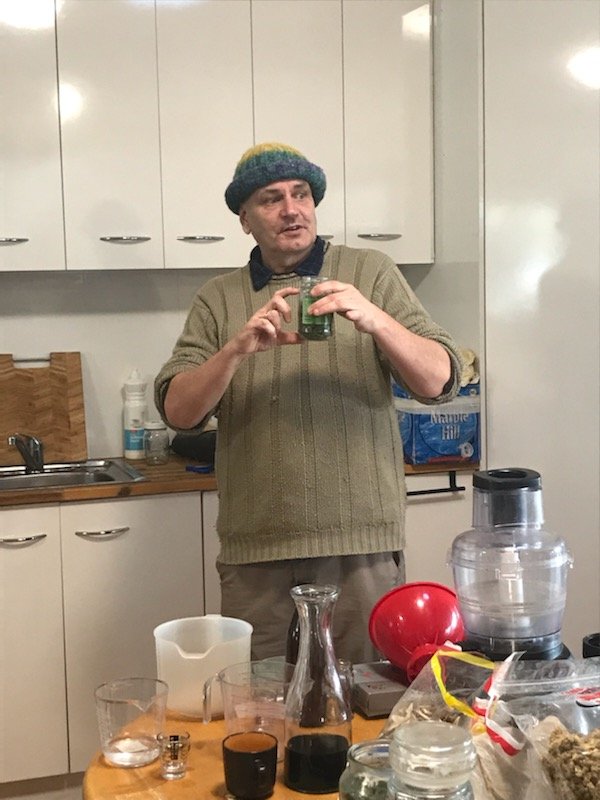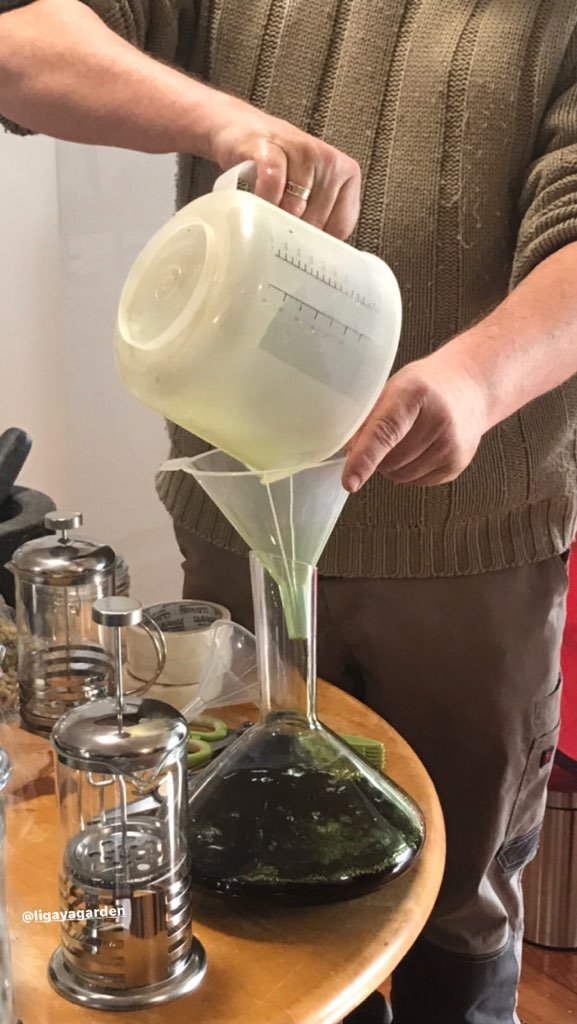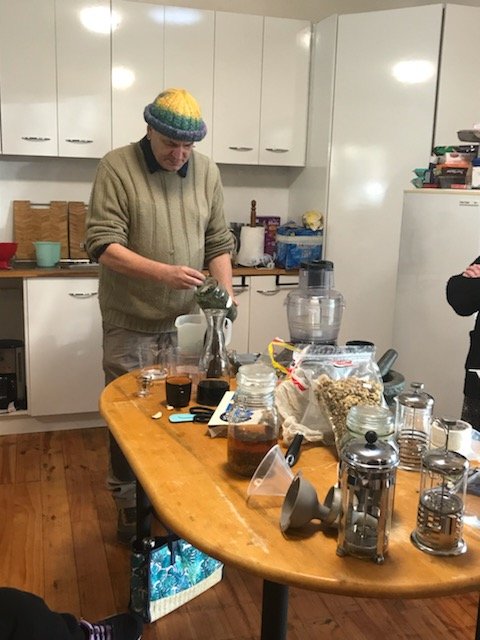Kitchen herbalism part #1 done and dusted

Yesterday, I presented ‘Kitchen herbalism part 1’ at Andrew’s Urban Farm, part of the ever growing network that is Joe’s Connected Garden. I was ably assisted by friend and naturopathy student, Raven Eylander.
We had 12 participants who, over 6 hours (including a huge, slow, long lunch) learned the basics of making teas, infusions, tinctures and oxymels. There was so much info and great interaction that folks didn’t have the time to prepare their own remedies as I had planned. Fortunately, I’d prepared some pretty comprehensive workshop notes that they could take home and a link for them to download another copy at home. The pics in this were taken by our friend Corryn.
Even though the focus wasn’t on the herbs themselves, there was a lot of chat about ailments and remedies. I think folks got a lot out of it. I know that I was buggered by the end of it and that’s always a good sign!

At Ligaya Garden, we run a number of workshops throughout the year. They’re usually in conjunction with another organisation because of our limited space. We work closely with Joe’s Connected Garden, The Precinct Community Garden and the Barossa Bush Gardens. I’ve not promoted workshops on this site before because if their sporadic nature and the fact that tickets sell out very quickly. A factor in this is that I like small groups of 5 to 10 people because that way I can give detailed attention to everyone, they all get to be up close and personal with the plants and fungi and we’re not trashing ecosystems as we walk through them.
In the next couple of months, we will be hosting a couple of weed walks/forages. Look out for those!
Every workshop comes with a detailed set of workshop notes that are only available to participants and paid supporters of Ligaya Garden. Participants can feel free to catch up with me after the workshops by email or phone to extend their knowledge of the workshop topic.
This year, I’ve formalised the Mushroom ecology workshops by connecting with ForestrySA and getting all the appropriate permits. I’m official, folks!
Workshops that we run include:
- Mushroom ecology and foraging
- Weed walks/foraging walks
- Kitchen herbalism (a 3 part series of workshops)
- Bushfoods and medicines
- Summer gardening
- Worm farming
- Natural pest control
- Biodiversity
- Growing great Ginger
- Making your own fertilizers at home
- Vertical and small space gardening
- and anything anyone suggests that’ll get plant based knowledge out to the general public and possibly turn a modesr buck or two 😇 whole doing it
Contact us on through any of the methods available on our appropriately named, ‘contact us‘ page or through any of the organisations listed above.







In past years I’ve done workshops on a variety of subjects. You are right about if it goes well one is pretty wiped out at the end.
I recently had an attendee of a long ago workshop tell me she attended as a subject for a talk she had to present. She said the information was so clearly presented and supported that her talk about my workshop earned her an “A”.
I no longer do workshops, simply don’t have the energy. But if people come to the farm and ask about it, I will talk with them as long as they want to listen. So I still teach, sort of.
I think attending your workshops would be a great fun thing to do. I think one would learn a great deal especially as you keep the class size small.
They are a great deal of fun! I try to keep everything in plain Anglish and make sure that everyone understands every stage of the topic. Small class sizes are vital to engagement.
Presenting workshops also teaches me what i know eell and what I'm a bit shaky on. Its all a learning experience!